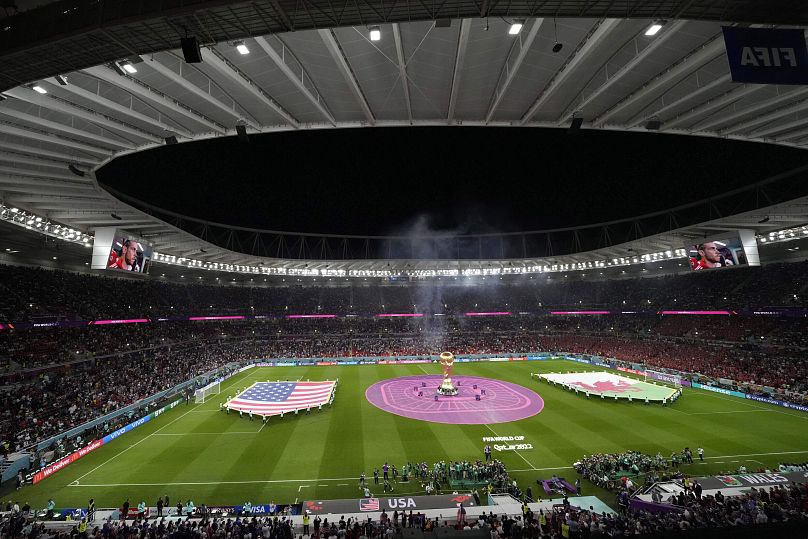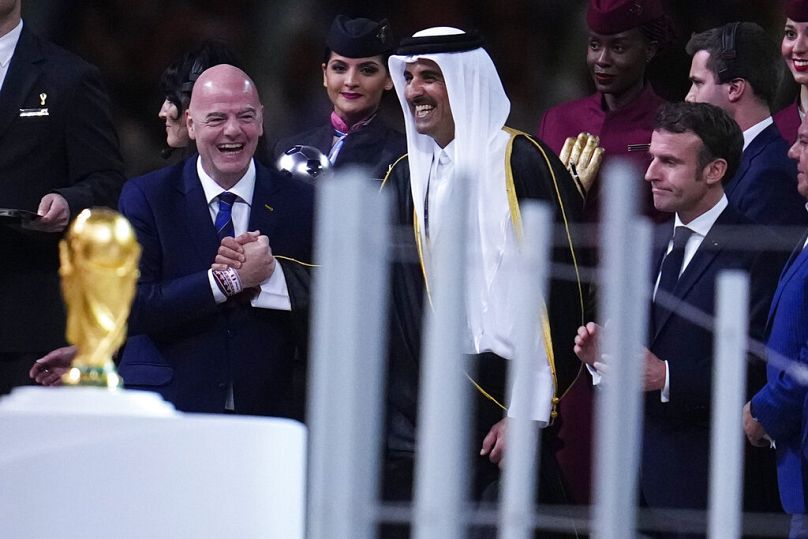Qatar's remarkable World Cup 2022 impacted the Middle East's football legacy, closing a longstanding sports gap between Europe and Asia.
The FIFA World Cup Qatar 2022 was a remarkable tournament that solidified a long-lasting legacy for the country. Hosted in the heart of the Middle East, the world witnessed 32 countries compete for glory in a sporting spectacle that many have dubbed the best World Cup of all time.
The tournament began with a stunning opening ceremony at the Al Bayt Stadium, setting the stage for a competition that will live long in the memories of football fans worldwide. However, for hosts Qatar, a double from Ecuador's Enner Valencia spoiled the party in the opening match.
The rest of the group stages witnessed football drama of epic proportions. Saudi Arabia's victory over eventual champions Argentina was the standout shock result. Morocco relished in their glory, topping Group F, making history as the first African team to advance into the semi-finals.
However, the climax of the World Cup witnessed Lionel Messi's talent on full display. His goals against France in the final helped secure Argentina's first World Cup since 1986 and cemented his legacy as the greatest player of all time.
The tournament's exceptional impact extended beyond just the pitch. In another first, Qatar put on a practical one-city World Cup. Middle East Football Expert Ben Jacobs told Football Now that the compact and accessible nature of the venues allowed for a vibrant spirit that showcased the region's love for football.
"It was effectively a Doha World Cup. You could get to pretty much every stadium from the centre of Doha within 30 or 35 minutes," Jacobs said, commenting on the logistical aspect of the tournament. "And there was the possibility to see more than one game in a day. There were strong stadiums, well-attended games, a real buzzing atmosphere."
Hosting the 2022 World Cup in Qatar significantly impacted the region's football infrastructure and created a lasting sporting legacy.
According to Jassim Abdulaziz al Jassim, CEO of the AFC Asian Cup, the World Cup's success came from facing initial concerns about the Middle East head-on. For Jassim, the doubts and scepticism only fueled the determination of the community to showcase Qatar's capabilities.
"We had a point we wanted to prove about the country. We did very well." Jassim said proudly.
Looking back, the hard work really started for Qatar after being announced as the 2022 World Cup host. A massive infrastructure investment enabled the country to host more tournaments. It paved the way for the Middle East to become more widely involved in international sports.
Qatar gathered a strong team of organisers that performed to what Al Jassim said is the country's highest standards. The success of the World Cup opened the doors to international recognition in the region.
The seven World Cup stadiums, once the battlegrounds of the world's best teams, are set to host the AFC Asian Cup games.
"It's the best thing that can come only a year after the World Cup, where we can show the legacy of the World Cup and then build on that for the future."
Standing firm on the shoulders of the FIFA World Cup, Qatar opens its doors again for another international football tournament. From January 12th to February 10th, 2024, the country is expecting an influx of football fans from across the globe, coming to cheer on their favourite teams as the AFC Asian Cup kicks off.
According to Jassim Al Jassim, the longstanding sports gap between Europe and Asia is finally closing, especially since another World Cup will be held in the region in 2034.
"I think ten years ago or 15 years ago, if you would have asked somebody, [do] you think Qatar, Morocco or Saudi Arabia will host the World Cup, I don't think that… people [were] expecting or believing that this would happen. We opened that door for people to dream, to find ways of making sure that sometimes the unexpected things can become very, very positive and very good," concluded Al Jassim.
All eyes were on Qatar in 2022, with the memorable games on the pitch, ending in that spectacular final between Argentina and France. Undoubtedly, 2024 will be an excellent year for sports in the region.




